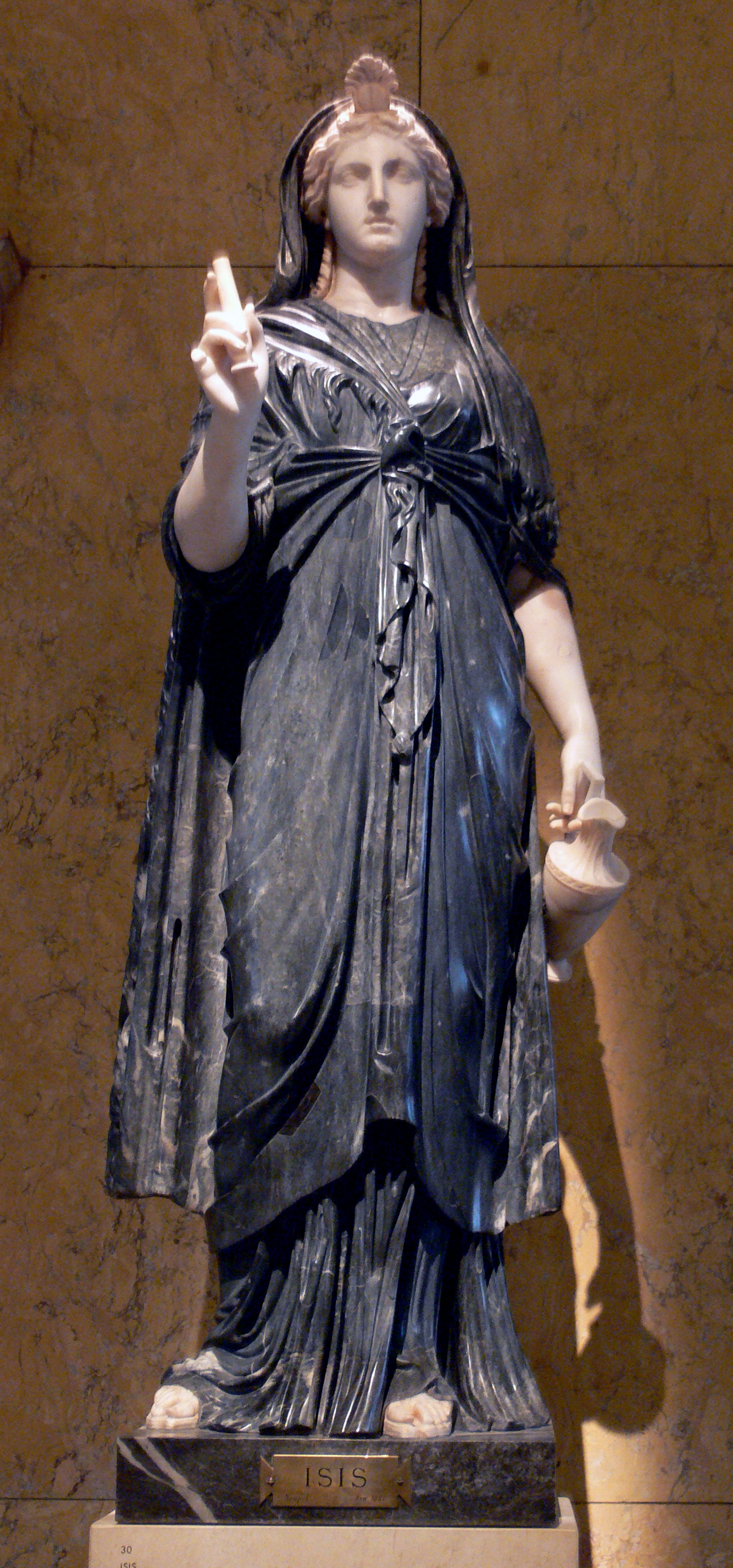
After freeing Isis from Seth’s imprisonment, Thoth advised the goddess to hide in the marshes. To protect the goddess and er unborn son, Horus, Thoth provided Isis with seven scorpions. Isis disguised herself as a beggar and began the long journey. When she needed rest, she stopped at the house of a rich woman to ask for food and a place to sleep. The rich woman slammed the door in Isis’s face, not knowing who the goddess was. Isis continued searching for shelter and found a poor fisherwoman who welcomed her, fed the goddess, and gave her a place to sleep.
As the goddess slept, the scorpions shared their rage over the rich woman’s refusal. They combined all the poison into the stinger of the leader, who went to avenge their mistress. The scorpion snuck into the wealthy woman’s house searching for her, but came upon her infant child first, and poisoned it. When the rich woman found her child suffering, she ran into the town crying out for help. Isis heard the child’s cries and felt compassion. Realizing what had happened, she commanded the poison to leave the child’s body, calling out the name of each scorpion. When her child recovered, the wealthy woman showed her gratitude by giving a portion of her wealth to the fisherwoman who had sheltered the goddess.
There are many facets to this story of the old gods of Egypt, but one that always comes to my attention is the relationship between the scorpions and Isis. The scorpions protect and shield the goddess from harm while she is pregnant and hiding from her enemy. Isis is not known as a timid or powerless deity, but her position at this point is vulnerable and she is best served by concealment and relying on the strength and generosity of others. What I find interesting about the story is that it does not show Isis revealing any personal outrage at being turned away by the wealthy woman, indeed she offers little commentary at all. Imagine—her husband has been murdered, her kingdom is lost, she has to hide from the man who wants to imprison her and would destroy her child if he learned about it, she has humbled herself to keep safe, and she finally musters up the will to ask someone for mercy only to get the door slammed in her face. One might understand if she would want to shed some tears, or scream, or say unkind things about the woman, but we see nothing. Instead, the scorpions gather all her rage unto themselves and, while she sleeps, take vengeance for the slight.
Looking at the microcosm of the human personality, I think of the scorpions as those barbed, poisonous parts of us that formed for our protection but can quickly and easily turn hostile and destructive. The scorpions have a job to do, but their guardianship turns toxic and aggressive, particularly when she is unconscious. These are the little slights, microaggressions, even the large oversights that come out in ways from which we could plausibly distance ourselves. The sarcastic compliment, the faint praise, the condescending correction, the malicious gossip, “mansplaining,” the offensive comment that was “just a joke”! Even sometimes the “accidents” that are not fully accidents, those subtle provocations and digs that spur the moment to a crisis.
When we cling to resentment and pain and refuse to face the problem, the toxins emerge nevertheless, as fatal to a relationship, a project, a team as any aggressive confrontation.

I remember working in a somewhat visible community role with another person who had joined the group after repeatedly and publicly criticizing our work. We attempted to include this person and their critiques into the process of changing community, but this person had a habit of veiling his critiques by referring to authorities who were not in our community or alluding to a mysterious group of people who hated us. “So-and-so thinks that this is the way things should be done.” “A lot of people out there hate our community, and we need to change their minds.” I experienced this as demoralizing and frustrating, and soon I no longer wanted to listen to this person. I realized that it is impossible to address complaints from invisible people who were unwilling to speak for themselves—if indeed they existed and were not convenient ways for the speaker to evade making his own stand. Several of us on the committee asked him to speak from his own perspective and voice his own complaints, but he rarely owned his own opinion and it became impossible to work constructively with him. This pattern repeated itself over numerous conflicts involving him and other members of the community. I advocate working as though people are acting in good faith, but good faith is hard to gauge when a person is unwilling to step forward and address conflict directly, take responsibility for their own actions and contributions, and take responsibility for their piece in resolving the conflict.
This is one example, but I think each of us has our own set of scorpions, and like Isis we would do well to learn their names and become conscious of how they work and what harm they can cause. Next week, I will talk more about naming and salving our poisons.

